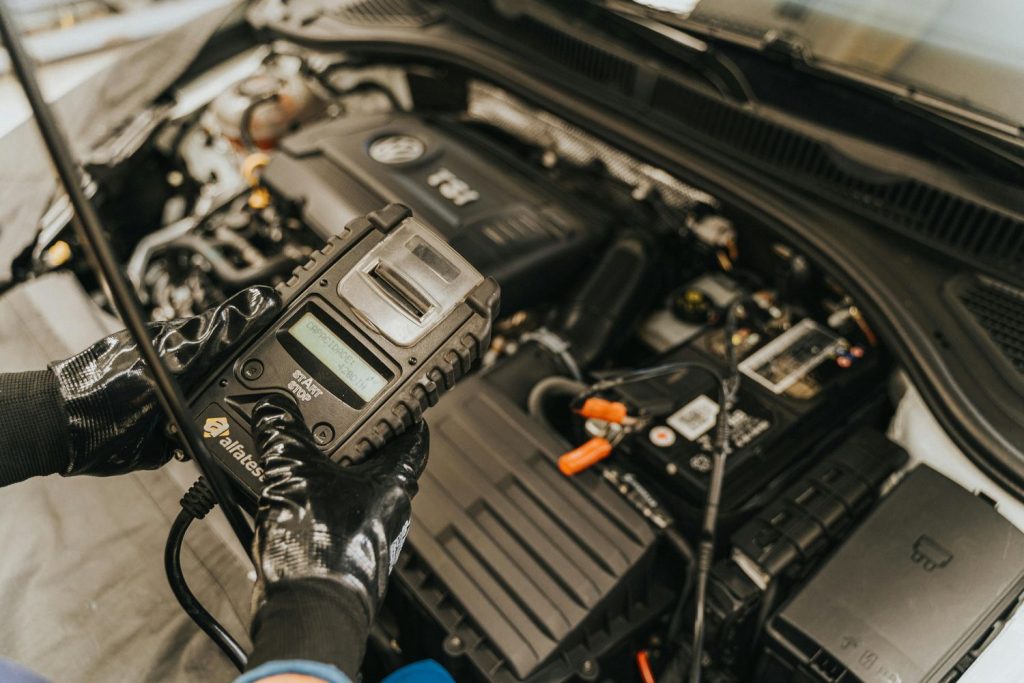Car inspections can feel nerve-wracking. You may have taken great care of your vehicle, but small issues hiding under the hood can throw off the results. One of the lesser-known culprits is the throttle position sensor (TPS). Many drivers in Waterford Park wonder if a faulty TPS could be the reason their car doesn’t pass an inspection. The short answer: it can, but the real explanation deserves a deeper dive.
In this article, we’ll break down what the TPS does, how it ties into emissions and performance, and why businesses like Texas First Auto Inspections in Waterford Park stress the importance of keeping this small part in top shape.
Understanding the Throttle Position Sensor (TPS)
What Exactly Does the TPS Do?
Think of the throttle position sensor as your car’s “interpreter.” When you step on the gas pedal, the TPS tells your vehicle’s computer how far open the throttle is. That information allows the car to deliver the right balance of air and fuel to the engine. Without it, the car’s computer guesses and that’s never good for performance.
The TPS ensures smooth acceleration, steady idling, and efficient fuel consumption. Without it, your engine might act like it’s confused about how fast you want to go.
Signs Your TPS Might Be Failing
A bad TPS doesn’t usually hide quietly. Some of the most common signs include:
- Jerky acceleration: Your car surges forward unexpectedly or hesitates when you hit the gas.
- Poor fuel economy: You find yourself filling up more often because the engine wastes fuel.
- Rough idle: The car shakes or struggles to stay running at a stoplight.
- Sudden stalling: The engine dies, sometimes without warning.
- Check engine light: A glowing dashboard light often signals the TPS has gone bad.
If you notice these symptoms, it’s a red flag your vehicle may struggle during inspection.

Why the TPS Matters in Auto Inspections
How Emissions Testing Relates to TPS Function
Texas auto inspections include emissions testing, which checks how much pollution your vehicle produces. A faulty TPS often causes the engine to burn too rich or too lean, meaning too much fuel or too much air. Both conditions create higher emissions, and the inspection machine will pick it up quickly.
Safety Concerns Tied to TPS Malfunctions
Aside from emissions, safety plays a big role. If your TPS acts up, the engine may hesitate during acceleration or lose power in the middle of a turn. Imagine pulling out of a busy Waterford Park intersection, pressing the gas, and the car doesn’t respond, dangerous, right? This is why inspectors take these malfunctions seriously.
Can a Bad TPS Trigger a Check Engine Light?
Absolutely. A faulty TPS often trips the check engine light, and inspection stations in Texas will immediately fail a vehicle with that light on. Even if the car seems fine, the law requires repairs before you can pass.
Common OBD-II Codes Linked to TPS
When technicians scan your car, TPS issues often show up as codes like:
- P0120: Throttle position sensor circuit malfunction
- P0121: TPS range/performance problem
- P2135: Throttle/pedal position sensor disagreement
These codes tell inspectors your car isn’t getting the right throttle information, which often points to a failing TPS.
TPS and Fuel Efficiency
Impact on Engine Performance
The TPS keeps your engine in sync with your driving. A good sensor makes your car feel smooth and responsive. A bad one leaves your engine running on guesswork, which often means sluggish acceleration, hesitation, and wasted fuel.
How It Affects Passing an Inspection
Fuel efficiency itself isn’t directly tested during inspection, but poor efficiency almost always signals a bad air-fuel mix. That imbalance raises emissions levels, which will put you at risk of failing.
What Happens During an Auto Inspection in Waterford Park
Key Components Checked During the Process
During a standard Texas inspection, technicians will check:
- Brakes
- Headlights and taillights
- Windshield wipers
- Tire tread and condition
- Exhaust and emissions systems
- On-board diagnostic (OBD) codes
If your TPS sets off a code or raises emissions, your car likely won’t pass.
Role of Emission Control in Passing Standards
Texas has strict emissions rules, especially in urban areas like Waterford Park. If your TPS throws off the mix, your car may release higher levels of carbon monoxide or hydrocarbons. That’s enough to cause a failure, even if everything else looks fine.
Can a Faulty TPS Directly Cause Inspection Failure?
Realistic Scenarios Where It Might Fail You
Here’s when a bad TPS will almost certainly lead to a failed inspection:
- The check engine light is on.
- The OBD scan shows TPS-related codes.
- Emission test results go above legal limits.
- The vehicle stalls or won’t maintain a proper idle during testing.
When the Problem Doesn’t Lead to Failure
Not every slight TPS issue guarantees a fail. If the problem is mild enough that it hasn’t tripped the check engine light or caused emissions to rise, you might still pass. However, ignoring the early signs only delays the inevitable.
Expert Insights: Texas First Auto Inspections
How Technicians Diagnose TPS Problems
At Texas First Auto Inspections in Waterford Park, technicians start with an OBD scan. They check for TPS-related codes, then evaluate how the car responds under acceleration. If needed, they may test the electrical output of the sensor directly to confirm the diagnosis.
Why Regular Maintenance Saves Time and Money
Catching TPS problems before inspection day saves you more than just frustration. It prevents failing the test, paying for repairs, and then coming back for a retest. Regular maintenance also helps protect your engine from long-term damage.

How to Fix a Faulty TPS Before an Inspection
DIY Steps vs. Professional Repairs
Some DIY mechanics can clean the throttle body or swap out a TPS themselves. However, calibrating a new sensor often requires professional tools. For most drivers, letting a trained technician handle it avoids costly mistakes.
Average Costs for Replacement
In Waterford Park, replacing a TPS typically costs $100–$250, depending on your car model. Compared to the headache of failing inspection and needing multiple repairs, it’s money well spent.
Preventing TPS Problems in the Future
Maintenance Tips for Longevity
- Keep the throttle body clean
- Use high-quality gasoline to avoid carbon buildup
- Schedule regular tune-ups
- Respond quickly to warning lights
Early Warning Signs to Watch Out For
Never ignore jerky acceleration, poor mileage, or rough idling. These are the early cries for help that, if handled quickly, prevent bigger problems.
The Bigger Picture: TPS and Vehicle Reliability
Avoiding Long-Term Engine Damage
A faulty TPS doesn’t just affect inspections. It strains the engine, fouls spark plugs, and increases wear on fuel injectors. Over time, that means higher repair bills.
How It Impacts Overall Driving Experience
Driving with a healthy TPS feels smooth, safe, and efficient. Driving with a faulty one? It’s like having a runner with one shoe untied, they’ll still move, but not for long without tripping.
Texas First Auto Inspections Serving the Waterford Park Community and Beyond in Houston
Texas First Auto Inspections is dedicated to serving the diverse needs of the local community of Houston, including individuals residing in neighborhoods like Waterford Park. With its convenient location near landmarks such as the Bammel Church of Christ and major intersections like Northgate Forest Dr. & Beecham Dr. (coordinates: 30.00883,-95.47897), we offer third party inspection services.
Get Third Party Inspection at Waterford Park Now
Navigate from Waterford Park to Texas First Auto Inspections Now
Ensuring a Smooth Path to Passing Your Inspection
Can a faulty TPS cause you to fail an auto inspection? In most cases, yes. Between triggering the check engine light, pushing emissions beyond legal limits, and creating unsafe driving conditions, a bad TPS is one of those issues you can’t afford to ignore.
If you’re in Waterford Park and need peace of mind, Texas First Auto Inspections can help you spot and fix TPS problems before they cost you time, money, and frustration. A small sensor shouldn’t stand between you and a passing grade.
FAQs
1. How often does a TPS fail?
Most TPS units last many years, but they can wear out faster if exposed to dirt, carbon buildup, or electrical issues.
2. Can I drive with a faulty TPS?
You can, but it’s risky. The car may stall or lose power unexpectedly, which is unsafe.
3. How do I know if my TPS needs replacing?
If you notice poor acceleration, rough idling, or a check engine light with related codes, it’s likely time for replacement.
4. Will resetting the check engine light help me pass inspection?
No. Inspectors will still see the stored fault codes in your car’s memory.5. Where’s the best place in Waterford Park to get TPS diagnostics?
At Texas First Auto Inspections, our technicians are experienced in catching TPS issues early and ensuring your car is inspection-ready.





